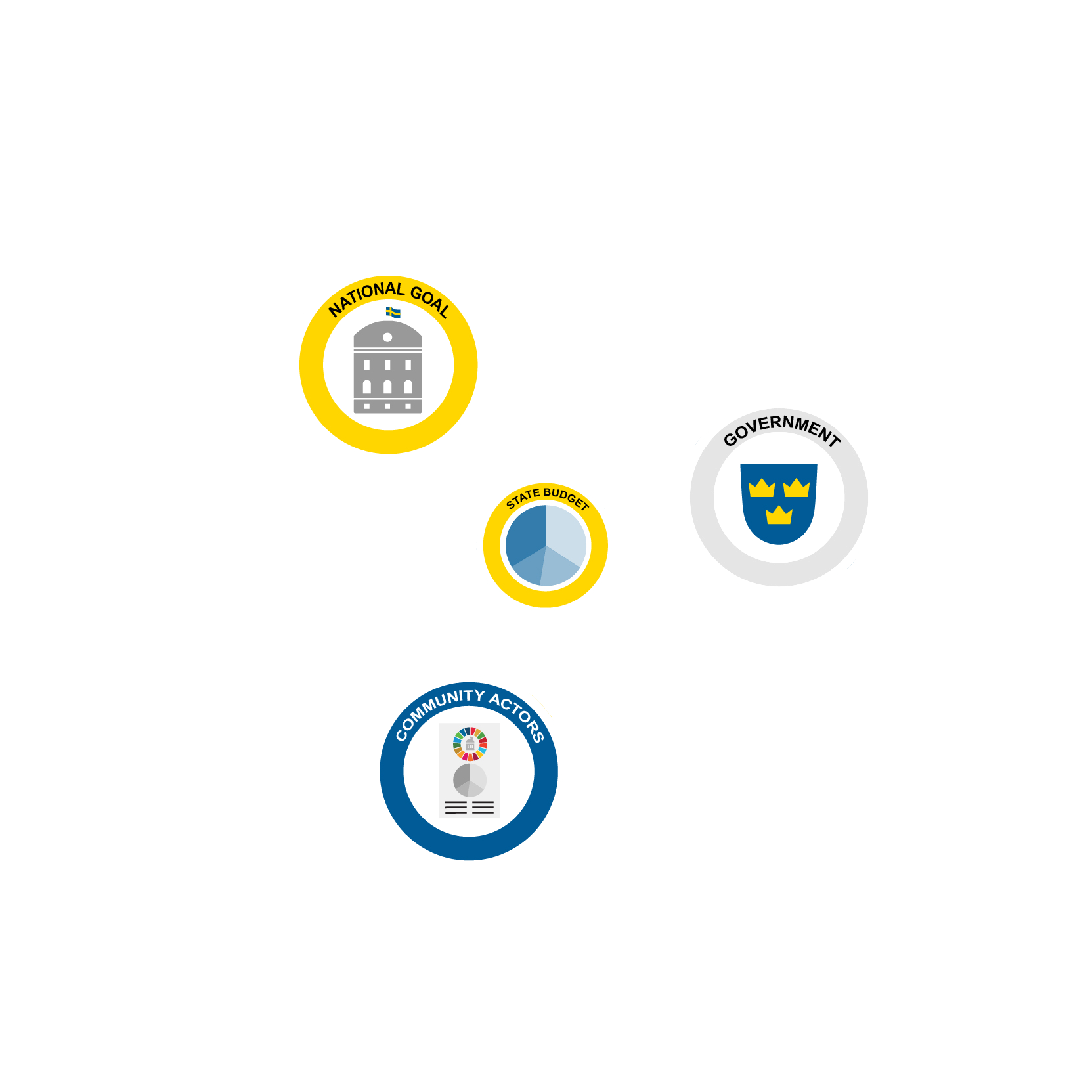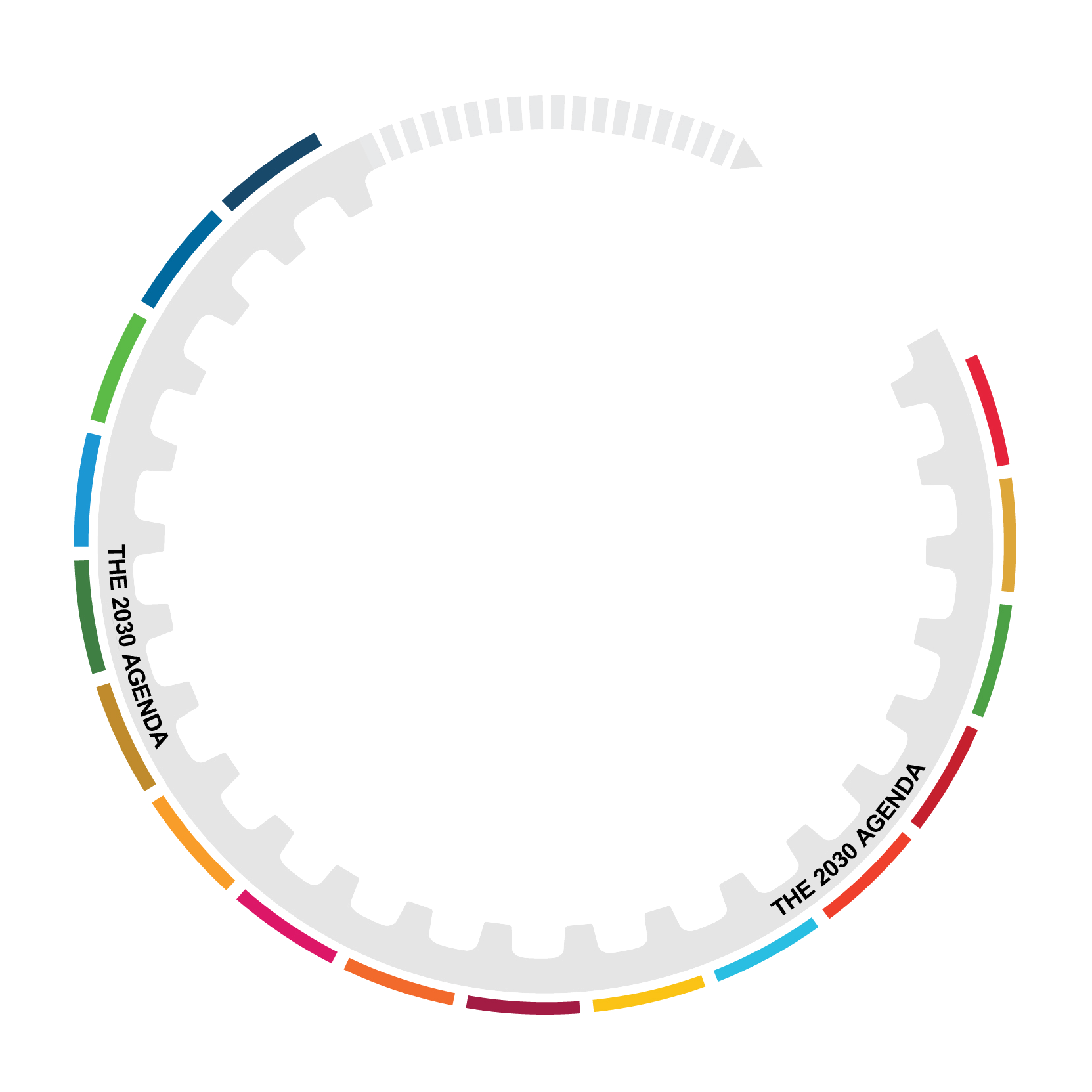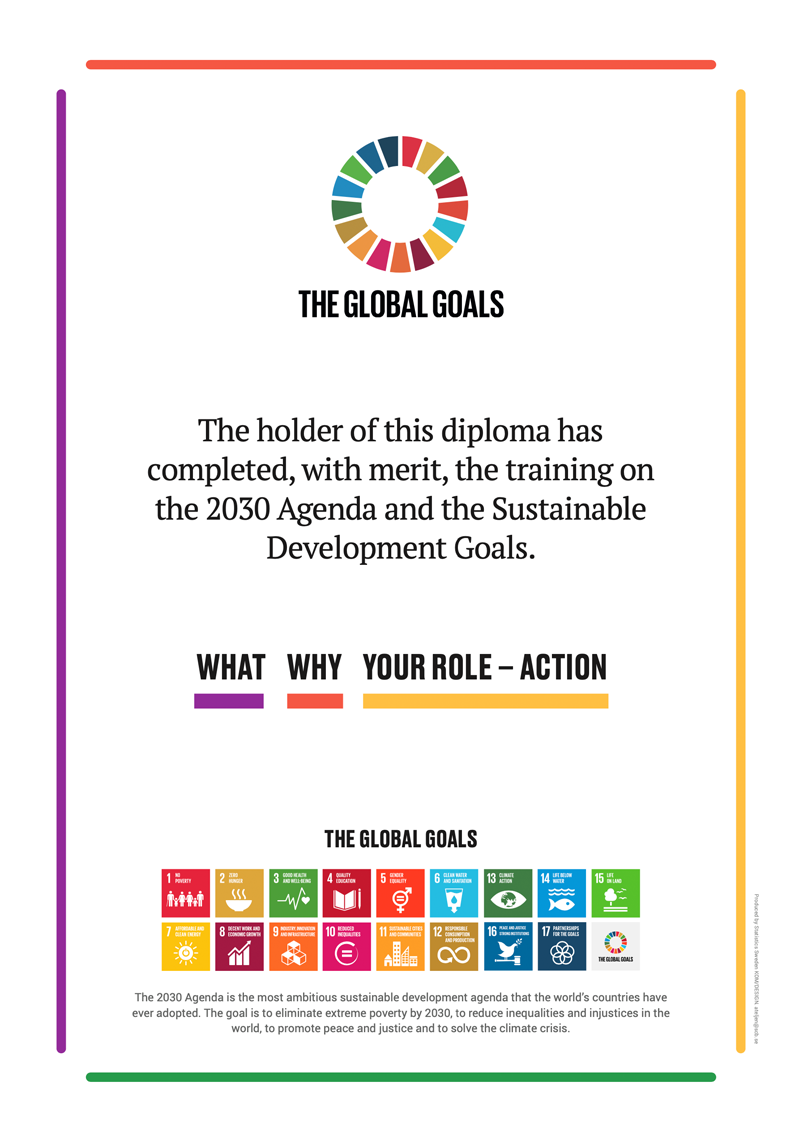1. How many Global Goals are there in the 2030 Agenda?
16
20
17
2. How many countries in the world drafted and adopted the 2030 Agenda?
21
98
All 193 United Nations member countries
3. Which actors should be involved in the implementation of the 2030 Agenda?
Governments, the private sector, civil society and the UN system
Politicians, business leaders and higher education institutions
Individuals, elected officials and MPs
4. At what levels is work towards the 2030 Agenda followed up?
Municipal, regional and national level
Private, public and national level
International, national and local level
5. What are the four components of the 2030 Agenda?
The political declaration, 17 Global Goals & 169 targets, funds, implementation
The political declaration, 17 Global Goals & 169 targets, funds, follow-up & evaluation
Increased knowledge, 17 Global Goals & 169 targets, funds, follow-up & evaluation
6. Which option is not one of the goals in the 2030 Agenda?
Ensure healthy lives and promote the well-being of people of all ages
Reduce the capacity for implementation of the Global Goals in developing countries
Achieve equality and the empowerment of all women and girls
7. What are the main challenges in Sweden at present?
Homelessness, unemployment among young people and declining levels of achievement in school
Inequality between groups, the national environmental goals as well as violence, abuse and bullying
Financial resources in health care, lack of resources in the military defense and environmental work at local level
8. Which actor has the ultimate responsibility for Sweden’s efforts to implement the 2030 Agenda?
Government agencies
Municipalities
The Government
9. Which alternative does not form part of the Public Service Ethos?
Democracy
Rationality
Efficiency and service
10. Which conditions are highlighted as particularly important for achieving the Global Goals?
Increased collaboration and innovative working methods
Working in silos and treating the Agenda as an individual project
Focus on the individual activities and my agency's area of expertise













